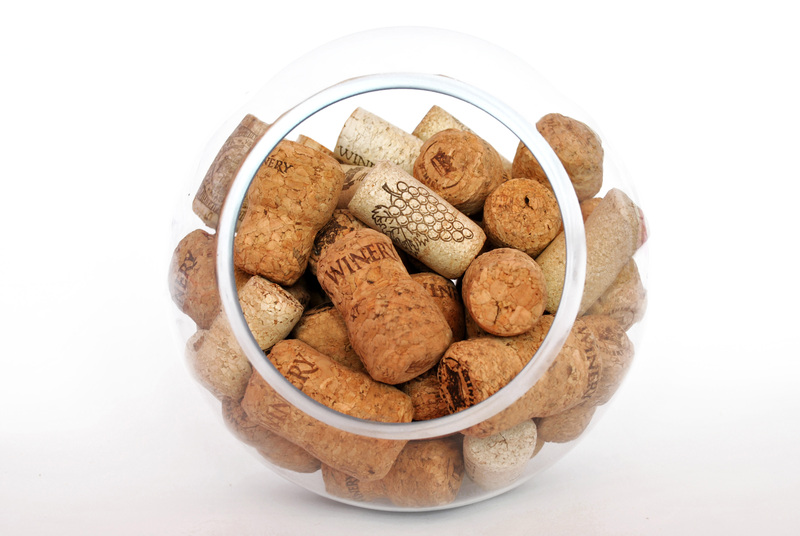Giving Your Used Pots and Pans a Second Life Through Recycling
Are your old pots and pans cluttering up your kitchen cabinets? Instead of tossing them in the trash, discover how you can give your used cookware a new purpose through responsible recycling and creative upcycling. In this comprehensive guide, we'll explore why recycling your pots and pans matters, where and how to recycle them, innovative ways to reuse old cookware, and tips for contributing to a more sustainable lifestyle.
Why Should You Recycle Old Pots and Pans?
Discarded cookware is a growing environmental concern. Millions of used pots and pans end up in landfills every year, taking centuries to break down and releasing harmful substances into the soil and water. By recycling your used pots and pans, you're not only freeing up space in your home--you're actively helping to conserve resources and protect the environment.
- Conservation of Resources: Most cookware is made from metals like stainless steel, aluminum, or copper, all of which are valuable and highly recyclable materials.
- Reduction of Landfill Waste: Recycling old kitchenware diverts bulk waste from crowded landfills.
- Minimized Environmental Impact: Manufacturing new cookware requires mining and processing raw materials, which contributes to greenhouse gas emissions. Recycling helps reduce this footprint.
Giving your used pots and pans a second life isn't just about decluttering--it's an essential step toward a more circular economy.

Understanding What Pots and Pans Are Made Of
Before recycling your old cookware, it's helpful to recognize the common materials they're made from:
- Stainless Steel: Durable, rust-resistant, and 100% recyclable.
- Aluminum: Lightweight and highly recyclable; be sure to check for non-stick coatings.
- Copper: Often used in premium cookware; highly valued in recycling industries.
- Non-stick and Ceramic Coatings: May require special handling, as some coatings are not recyclable and can interfere with the recycling process.
- Cast Iron: Can last for generations and is recyclable, although often suitable for refurbishment or donation.
Understanding the material composition helps determine the best recycling or repurposing route for your used pots and pans.
Where Can You Recycle Old Pots and Pans?
Finding the right place to recycle your second-hand cookware may require a bit of research. Here are some of your best options:
1. Local Recycling Centers
Many municipal recycling centers accept metal cookware for recycling. Check with your local facility to confirm if they accept cookware, and whether there are specific requirements, such as removing non-metal handles or coatings.
2. Scrap Metal Yards
Scrap metal dealers are usually happy to accept pots and pans made from steel, aluminum, or copper. This is especially true for older, heavier pieces. Note that you may need to strip away non-metal parts before dropping them off.
3. Cookware Brands and Retailers
Some manufacturers and big-box retailers run take-back programs or periodic recycling collection events for used cookware. For instance, big-name retailers like Williams Sonoma or Sur La Table occasionally offer cookware recycling initiatives.
4. Donation Centers and Thrift Stores
If your pots and pans still have some life left in them, consider donating to local charities, shelters, food banks, or thrift stores. They'll extend the item's useful life and potentially help families in need.
5. Specialized Recycling Programs
Some non-profit and private organizations accept non-stick or ceramic pans that standard recyclers reject. TerraCycle, for example, runs zero-waste box programs suitable for recycling hard-to-recycle kitchenware.
Tip: Always call ahead or check online guidelines to ensure your items will be accepted and properly processed.
How to Prepare Pots and Pans for Recycling
Proper preparation of your used cookware before recycling is crucial. To make the process more efficient and ensure that your items are accepted, follow these steps:
- Clean Thoroughly: Remove all food residue, grease, and grime from your old pots and pans.
- Disassemble if Possible: Remove any plastic, silicone, or wooden handles, lids, or decorative parts. These should be recycled separately or disposed of safely.
- Identify the Material: Sort your cookware by material--such as aluminum, stainless steel, or copper--as some recycling centers require separation.
- Check for Non-Recyclable Parts: If your pan has a non-stick or ceramic coating, research local guidelines; some recyclers cannot accept these coatings.
By prepping your cookware in advance, you'll streamline the recycling process and help ensure your old pots and pans are given a second life in their next form.
Creative Ways to Repurpose Old Pots and Pans
Not all used pots and pans need to head for the scrap heap. Creative upcycling offers sustainable, fun, and often beautiful ways to use these items in new contexts. Here are some ideas:
1. Planters and Garden Decor
Transform your old saucepans, skillets, or Dutch ovens into rustic plant pots or whimsical garden decor. Drill drain holes in the base, fill with soil, and plant flowers, herbs, or succulents.
2. Art and Crafts Projects
Metal pots and pans make appealing canvases for paint, mosaic, or sculpture projects. Try mounting them on walls for a unique industrial look, or paint them for playful outdoor decorations.
3. Bird Feeders or Bird Baths
Upcycle shallow pans or bowls into lovely bird feeders or bird baths. All you need are some creative stands or hangers and a bit of imagination!
4. Storage Solutions
Repurpose deep pots as storage bins for toys, craft supplies, tools, or even pet food. They add a quirky, practical touch to garages, sheds, or pantries.
5. Candle Holders or Lanterns
Convert smaller or uniquely shaped pans into candle holders or lanterns for cozy, upcycled home accents. Paint the outside, add a candle, and enjoy the warm glow.
6. DIY Clocks
Attach a clock mechanism to the center of an old pan lid for a funky, functional kitchen clock!
- Upcycling not only prevents waste but also adds charm and originality to your home and garden.
Donating Used Pots and Pans: Giving Back to the Community
If your pots and pans are still functional, consider donating them. Many organizations and individuals are in need of affordable cookware. Donation is a perfect way to give your old items a second life while making a meaningful impact in someone else's kitchen.
- Homeless shelters and transitional housing programs
- Community kitchens or food banks
- Local charities and thrift stores
- College students or young adults moving into their first apartments
Before donating, ensure items are clean, safe to use, and meet the recipient's guidelines.
Tips for Recycling Non-Stick and Specialty Cookware
One of the biggest challenges with recycling old pots and pans is handling non-stick cookware--especially those with Teflon or ceramic coatings.
- Non-stick coatings like Teflon can't be recycled with regular metals, and should never be handled as scrap metal unless the coating is removed. Some specialty recycling companies can process these items; research your local area.
- Ceramic or enameled cookware is also tricky, as some centers will only take the metal core if the outer coating is removed.
- Induction cookware (with magnetic steel bases) is generally accepted as scrap metal--after any non-metal parts are removed.
Always confirm with the recycling provider about how to handle and prepare specialty cookware before dropping it off.
The Environmental Impact: Why Responsible Recycling Matters
Choosing to recycle your old pots and pans--rather than sending them to the landfill--has a significant positive effect on the planet.
- Reduces landfill waste: Metal cookware can take hundreds of years to break down.
- Conserves resources: Recycling metals saves energy, water, and prevents further mineral extraction and habitat destruction.
- Decreases pollution: Manufacturing new metals from recycled materials generates fewer emissions and uses fewer chemicals.
- Supports the circular economy: Recycled metal gets turned into new products, which can be recycled again in the future.
By giving your used cookware a second life, you're joining a global movement toward sustainability--and every pan counts!

How to Choose Sustainable Cookware in the Future
Once you've cleared out your old pots and pans, consider making more sustainable choices for future purchases. Here are a few tips:
- Opt for recyclable materials: Stainless steel, cast iron, and uncoated aluminum are all excellent choices.
- Choose durable, long-lasting items: Invest in high-quality cookware that can last for decades, not just a few years.
- Look for brands with recycling programs: Many reputable manufacturers now offer take-back or recycling initiatives.
- Avoid excessive coatings and plastics: Simpler products are easier to recycle when their life ends.
Choosing responsibly today makes recycling easier tomorrow!
Conclusion: Make Every Pan Count for the Planet
Giving your used pots and pans a second life through recycling is easy, impactful, and often creative. Whether you drop them at your local recycling center, upcycle them into home decor, or donate them to those in need, every effort helps reduce waste and build a more sustainable future.
The next time you upgrade your kitchen, think twice before sending that old skillet or saucepan to the landfill. With a bit of effort, you can recycle or repurpose your cookware--and perhaps inspire others to do the same!
Key Takeaways
- Recycling old pots and pans conserves resources, reduces pollution, and supports a healthier environment.
- Preparation--such as cleaning and removing non-metal parts--is crucial for smooth recycling.
- Get creative with upcycling projects or donate functional items to extend their life.
- Always check with local centers or specialty recyclers for material-specific instructions, especially for non-stick or ceramic cookware.
- Choose sustainable, recyclable cookware for future purchases to continue supporting the circular economy.
By taking these steps, you're not just cleaning out your kitchen--you're making a positive, proactive choice for the planet. Happy recycling!